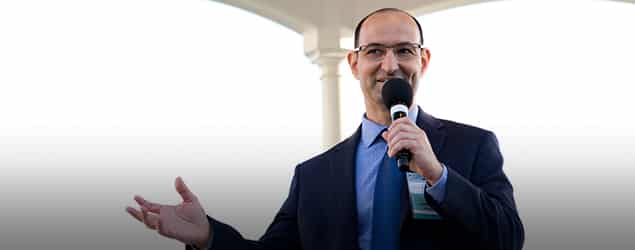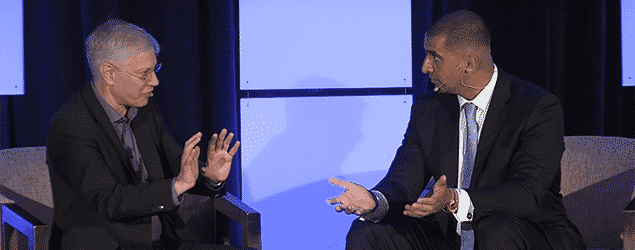An Orientation to Objectivism at Objectivist Summer Conference 2016

Every year, the Objectivist Summer Conference attracts people who are relatively new to Ayn Rand’s philosophy of Objectivism. That’s why we’re offering an OCON 2016 introductory course tailored to newcomers who would like to learn more. The course, “An Orientation to Objectivism,” will address important aspects of the philosophy and its real world applications. Beginning with a session on Rand as both a novelist and philosopher, the course will explore the relation between Objectivism and religion, the implications of selfishness for our relations with others, the proper role of government and the nature of a rational foreign policy.
Here is a complete list of the sessions included in “An Orientation to Objectivism:
Class 1: Ayn Rand: Novelist-Philosopher (Saturday, July 2, 8:40–9:40 a.m.)
Ayn Rand was often asked whether she regarded herself primarily as a novelist or a philosopher. In response to one such questioner, Rand answered: “I am primarily both.” What did she mean by that? And why do you have to pay attention to both Rand’s fiction and nonfiction to learn Objectivism? In this session, Onkar Ghate explores the relationship between Rand’s philosophy and her literary goals.
Class 2: Objectivism and Religion (Sunday, July 3, 8:40–9:40 a.m.)
What is the Objectivist position with regard to the concept of God? Is Objectivism compatible with religion? Why is Objectivism opposed to faith? In this session Aaron Smith addresses these questions from the perspective of Ayn Rand’s view of the nature of reason and the means by which we acquire knowledge about reality.
Class 3: Selfishness and Other People (Monday, July 4, 8:40–9:40 a.m.)
It is common to associate benevolence and goodwill toward others with unselfishness and morality, while associating selfishness with immorality and a lack of concern for other people. Ayn Rand rejects this approach. In this session Aaron Smith discusses how a truly selfish person should view other people.
Class 4: Why Laissez-Faire? (Tuesday, July 5, 8:40–9:40 a.m.)
Ayn Rand was a champion of capitalism—not of today’s mixture of freedom and government controls, but of “full, pure, uncontrolled, unregulated laissez-faire capitalism.” Why does Rand think that it’s so important to uphold such a radical position (a position that even many libertarians do not take)? In this session Steve Simpson situates Rand’s view of a proper political-economic system within the broader context of her moral philosophy, explaining the fundamental principles that account for Rand’s uncompromising position.
Class 5: The Virtue of Selfishness in Foreign Policy (Wednesday, July 6, 8:40–9:40 a.m.)
In debates over US foreign policy, no side says that it plans to sacrifice America’s interests. Yet this is what our foreign policy continually does, no matter who is in charge. Why? By reference to developments in the Middle East, Elan Journo contrasts a proper, Objectivist conceptualization of America’s self-interest from prominent views in the debate.
Class 6: Objectivism Q&A (Thursday, July 7, 8:40–9:40 a.m.)
In this final session of the course, Onkar Ghate and Gregory Salmieri answer audience questions about Ayn Rand and Objectivism.
Register for OCON 2016, taking place in the greater Seattle area, July 2–7. At OCON, you may take the course in its entirety or drop in on individual sessions of particular interest. Learn more.
For more news on ARI’s fight for a rational culture, subscribe to Impact Weekly.



